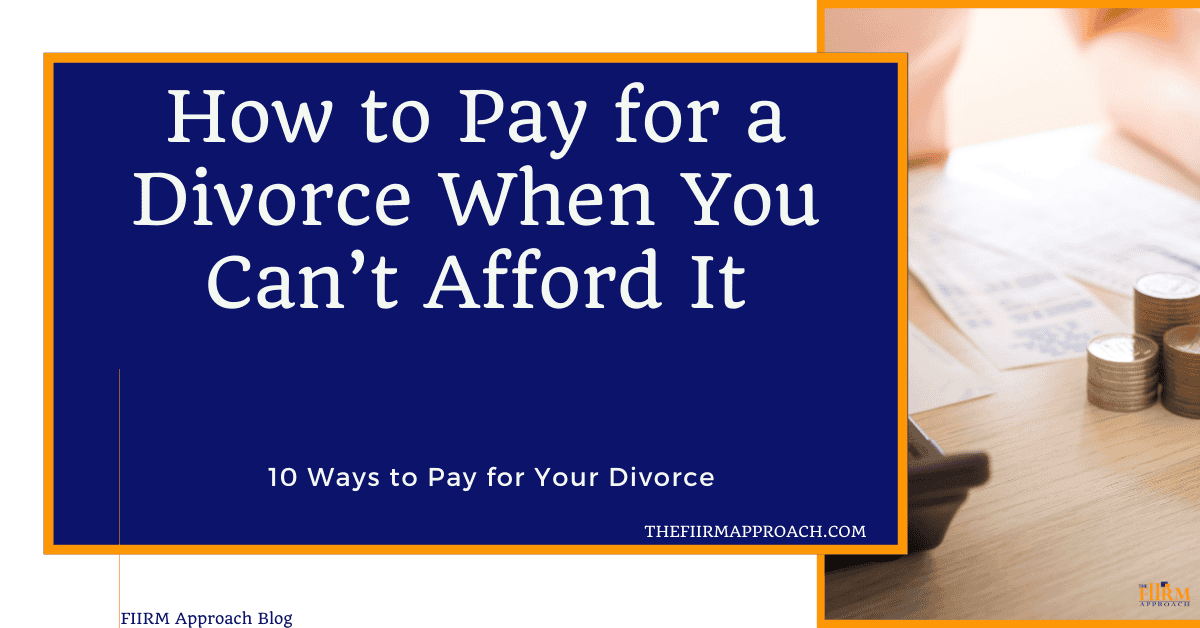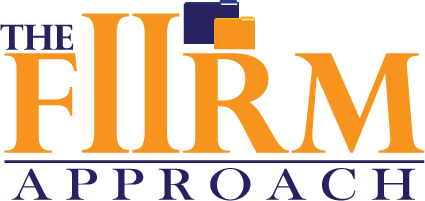
How to Pay for a Divorce when you can’t Afford it
Published October 15, 2024
Very few people understand your personal economy better than you and your spouse. When you are thinking about uncoupling, there’s no way to avoid the money aspect of divorce. Part of that includes trying to figure out how to pay for a divorce lawyer with no money and how to manage the financial demands of divorce without breaking the bank.
How to Fund Your Divorce Without Breaking the Bank
This blog post will explain how to get a divorce when you have no money or limited access to cash and offer insights to help you through your pre-divorce / divorce journey. As a mom and primary breadwinner, I understand that whether you are paying for groceries, daycare, or college tuition, I’m sure we can agree that it feels like life keeps getting more expensive.
By the end of this post, regardless of whether you’re a career woman, stay-at-home mom, stay-at-home wife, or someone “whose money tries to act funny,” you’ll have a better understanding of ways to pay for your divorce and keep your divorce costs lowered plus some tools to tackle your divorce with FIIRM confidence.
Knowledge is Powerful & Valuable in a Divorce
The first step in your divorce journey is researching online resources, podcasts, blogs, books, and YouTube videos on divorce. Understanding the requirements in your state, including waiting periods, child support calculations, and necessary documents, can help you manage your expectations about the process and minimize unnecessary costs due to excessive delays.
Facebook communities or other social media platforms allow individuals to share their personal divorce experiences and tips, which may be a source of support and information.
Knowledge is power, especially in a divorce. Utilize divorce-focused podcasts, blogs, and books to help you make informed decisions and reduce reliance on expensive legal services. It will also help you understand legal jargon and advocate effectively for your needs during discovery & negotiations.
For example, an uncontested divorce will generally cost less than a contested divorce. Sometimes, this is outside of your control, but it’s still good to know.
Exploring Legal Aid Options for Low-Cost Divorce
The availability of legal aid options will vary depending on where you live; however, it can be beneficial when your finances are limited and you need legal assistance with the divorce. Legal aid can be a perfect option for someone trying to pay for a divorce lawyer with no money because legal costs are often the most expensive aspect of a divorce. Legal aid clinics offer legal services at little to no cost for a variety of reasons; however, eligibility is usually determined by the circumstances of your case and your annual income.
You can research the options available in your area by typing “legal aid + your city” (e.g., Legal Aid Chicago), “legal aid + your city & state,” or “legal aid + your state,” as resources will vary depending on your geographic location. It’s important to remember that legal aid organizations and your local law school will have limited resources, and the demand typically outweighs the supply, so it’s never too early to connect with the legal aid clinic or organization.

Maximizing Employee Benefits Options When Divorcing
It’s not uncommon for employees not to realize how many nonfinancial benefits are available to help them through different life transitions. Your employer may offer benefits to support you during the divorce process. These benefits may include access to legal, mental health, or financial professionals for a free consultation or at deeply discounted rates.
If your workplace offers employee assistance programs (EAPS), these benefits are likely to be available there. If you don’t have a formal EAP, contacting your HR representative could be the next step to get information on services and resources that are available to you.
Your employer may offer reimbursement for specific legal costs on a case-by-case basis. If you are concerned about your privacy or confidentiality, most employers do not require your manager’s approval or consent to use these resources.
Another possible source for help is your employee resource groups, often known as employee affinity groups. It is common for these groups to focus on specific educational topics related to challenges that negatively impact work performance, health, and overall wellness.
The good news is that your employer’s benefits can be a great option because your personal financial situation is often irrelevant.
How to Find Pro Bono Legal Services for Divorce
Similar to the options described about legal aid services above, some attorneys are willing to provide pro bono work for individuals with limited resources going through a divorce. When you are trying to determine how you can pay for a divorce lawyer when you have no money, this is a viable option for some.
When you consider the “what”, one of the easiest yet scariest things you can do is get organized. It may take some time, but it’s often time well spent.
You will likely have to provide personal information about your finances and marital circumstances to see if you fit the eligibility criteria, increase your chances of being accepted, and be prepared to submit applications to multiple law firms because resources are limited. You can start your search by connecting with local nonprofits or your local Bar Association to find lawyers or firms that regularly provide pro bono legal services for low-income individuals.

Alternatives to the Traditional Divorce Attorney Services
When people think about divorce attorneys and the best way to engage with them, it is generally seen as an all-or-nothing situation. However, because traditional legal representation can cost four, five, or six figures, there are other cost-effective ways to get legal representation.
Don’t be afraid to negotiate fees or explore payment plans when hiring an attorney. Many attorneys are willing to work with you if you can show that the divorce will cause financial strain on your budget.
Some attorneys offer flat-fee services for straightforward divorces, while others might negotiate lower hourly rates or a unique financial arrangement depending on your circumstances. Your attorney might allow their fees to be paid from assets from your settlement; however, this is not common, as most attorneys don’t want to serve as your bank or finance company.
As discussed in our pre-divorce on-demand digital resource, Silent Preparation Series, mediation services can be affordable for couples willing to work together toward an amicable divorce settlement. You can also utilize divorce websites if you have a simple divorce case (no children / limited assets) to do much of the upfront work for your divorce process. Then, you seek out a law firm that provides unbundled / ala carte services in your city or town and can handle certain aspects of your divorce. Most divorce attorneys who offer this option will be happy to work with the mediator or other divorce experts to provide you with legal advice, document preparation, or document review.
This approach can significantly lower the cost of a divorce without seeking full representation. Remember that DIY divorce, self-representation, and pro se divorces can work in limited situations, but court fees are still involved in filing, serving, and finalizing your divorce. Attorneys can provide valuable information and insights, and it is often worth it to consult them BEFORE you sign on the dotted line of your settlement agreement. There’s little that can be done once you’ve signed, particularly if your funds are limited.
Divorce Funding companies
Would you be surprised if I told you that some companies fund or finance your divorce? While this may not be a good fit for everyone, divorce funding companies assess funding eligibility based on the expected settlement from your proceeds, not current assets or income.
When the divorce settlement is finalized, a divorce funding company will typically take a portion of your settlement in return for covering the cost of your divorce. These companies usually work with clients who have legal representation versus self-representation, and you’re essentially borrowing the money to pay for your divorce attorney or other professionals if you have no access to funds to pay for your divorce.
The arrangements made with the divorce funding company can vary by provider, and there are not many in the market. It’s not for everyone, but I can see how it works for some. There is typically a minimum funding and marital asset requirement before funding will be disbursed.

Assessing Personal Funds to Pay Your Divorce
Create a sinking fund: It’s common for people to consider a divorce for a long time before they pull the trigger. You can open a savings account and create a personal sinking fund to save for expenses related to your divorce, link your retainer fee or security deposit for an appointment.
You can make slight adjustments to current expenses to carve out funds for your divorce expenses or utilize windfalls like tax returns, bonuses, or other lump sum payments to begin to create a reserve. Small contributions add up over a 12-24 month period.
Word of caution: These funds are not considered separate property.
Using Credit or Personal Assets or Equity to Pay Your Divorce
Credit card or Personal Loan – Consider using your credit card to pay for attorney’s fees and other divorce expenses. However, make sure you have a strategy for how you will use the cards. Your plan could include:
-
Spreading the cost over multiple credit cards.
-
Taking advantage of low interest rate promotional offers.
-
Ensure the balance is paid off before you incur high interest rate charges.
If you have an account at a credit union, you can get an unsecured personal loan to help support payment of legal expenses or court filing fees. The terms of these loans heavily depend on your credit score, income, and financial need.
Home equity line of credit – If you own property and owe less than its value, some loans can provide you with funds for your divorce. A home equity loan or line allows you to borrow against the value of your home if you have available equity.
Getting approval for a home equity loan has multiple steps, and while a judge may be involved in the decision to utilize this option, the judge cannot force the bank to approve the law. So, even if you have equity in the home, you still must be credit-qualified to receive the funds.
Retirement Assets – It may be possible to tap into your retirement assets, such as a 401(k) or IRA, to cover the costs of your divorce. There may be tax or penalty implications, so it would be wise to consult with a financial advisor to understand the impact of this decision before you finalize anything.
Loans against a 401K require spousal approval, while distributions from an IRA do not. However, recognize that tapping into retirement assets may impact the outcome of the division of property.
Life Insurance Loan – If you have a life insurance policy with a cash value, you may be able to borrow against it at a low interest rate. Borrowing against a life insurance policy may impact the death benefit to the beneficiary, so make sure you fully understand the impact of this option.

Your Spouse Pays for the Cost of the Divorce
Court-ordered fees -The court may order the moneyed spouse, higher-earning spouse, or more financially stable spouse to pay both sides of attorney fees and court costs, but this isn’t as easy as it sounds.
However, if you are working with an attorney, they can help you through this process.
Your Support Network May Be a Possible Financial Resource
Your Support Network—Divorce usually sucks, and feeling alone sucks even more. It is essential to surround yourself with family, close friends, or supportive communities and groups who can support you in the way you need it.
Don’t forget to consider financial support from family or friends as a possible resource. While it might be uncomfortable to ask, if the amount is within the means of the person you’re asking, this temporary assistance can make a significant difference.
Your support network may also provide a helping hand as you come out on the other side of divorce and need critical items to start your next chapter. This may include furniture, dishware, glassware, cutlery, linen, or other household goods you were required to split with your soon-to-be ex.
Time for FIIRM Hero Action
This blog post was intended to help you better understand how to pay for a divorce when you can’t afford it due to your financial circumstances. It also provided insights on steps to keep the cost of divorce down. Take action today before your divorce proceedings begin to understand what options are available to you based on how much money you have or don’t have.
Dealing with a divorce when it feels like it will break the bank can feel overwhelming. The resources above can help you access the legal support you need when money is an issue.
Empower yourself with knowledge, explore affordable legal alternatives, or even get free legal help to get you through this transition. Don’t let financial issues stop you from starting your next chapter. Hopefully, this post has convinced you that, at a minimum, there are ways to afford a divorce with little to no money.
Ready to take control of your financial future Download our Divorce Support Pack to get started on finding the right resources to help you.

Nikki Tucker
Founder & Managing Director
Nikki is an experienced financial services professional, a Certified Divorce Financial Analyst ®, and the primary divorce financial strategist for The FIIRM Approach. She helps female breadwinners prepare for divorce to avoid common financial mistakes and confidently maintain their financial security post-divorce. She uses proven strategies within the FIIRM Approach methodology so her clients can manage their money, debt, and credit and be connected to the right resources for the next phase of life. TAKE ACTION & LEARN about the tools that can help make your pre and post-divorce easier. Grab your FREE Divorce Support Pack.
